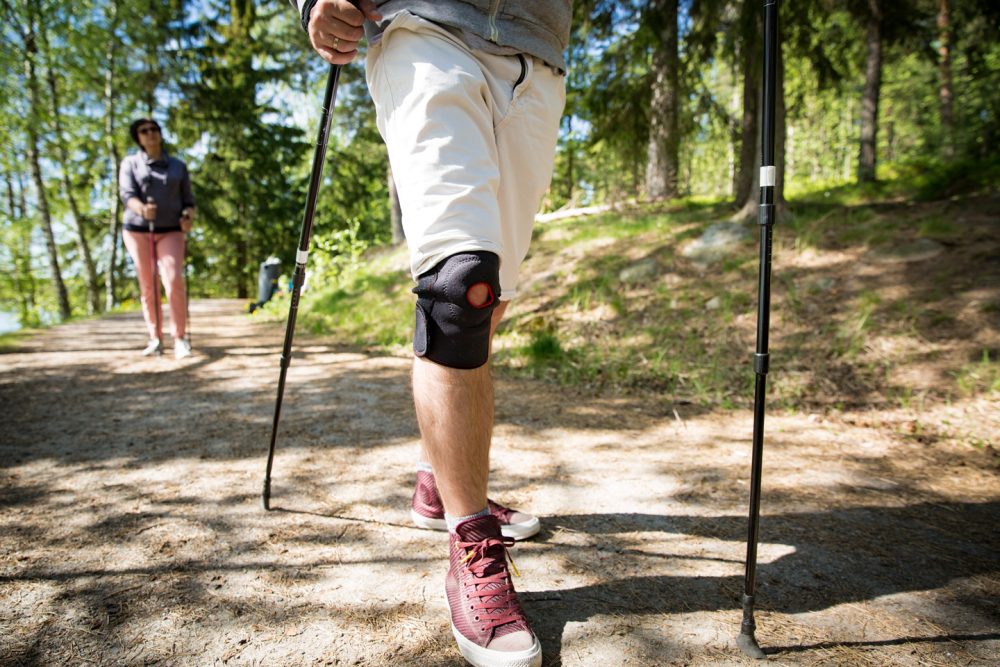Top 5 Natural and Effective ways to Reduce Pain from Arthritis and Joint Inflammation

1. Exercise
- Exercise promotes weight loss which reduces pressure on joints
- Exercise helps lubricate stiff joints by stimulating the production of synovial fluid, a natural lubricant that reduces friction between bones and allows for smoother movement.
- Building muscle around arthritic joints can reduce stress on the joints, improve stability, and potentially ease pain and stiffness by acting as a "brace" to protect them.
2. Heat Therapy
- Infrared sauna therapy can help arthritic joints by promoting relaxation, increasing blood circulation, reducing inflammation, and releasing endorphins, which can ease pain and stiffness.
- Apply a capsaicin (chili) based topical cream every morning to warm and soothe stiff joints and help to relieve pain.
3. Cold Therapy
- Using cold therapy can help to reduce arthritis pain, inflammation and swelling and may be especially helpful during a flare when you have hot, swollen joints.
- Try using cold gel packs, frozen vegetables (such as peas), or bags stuffed with grain. These should be kept in the freezer until needed.
- Apply a cooling, menthol-based topical cream in the evenings to cool, soothe and relieve inflamed joints.
4. Avoid Inflammatory Foods
- Inflammatory foods can worsen arthritic joint pain and inflammation by triggering the release of inflammatory chemicals and potentially damaging cartilage, leading to increased pain, swelling, and stiffness. Top foods to avoid include:
Added sugars - such as those found in baking, soda, ice cream, and numerous other foods, including barbecue sauce, salad dressings, and sauces.
Processed meat - Some research links processed meat to inflammation which may increase arthritis symptoms. Studies show that people who eat a lot of processed and red meats may have higher levels of interleukin-6 (IL-6), C-reactive protein (CRP), and homocysteine. These are markers of inflammation.
Gluten containing foods - Gluten is a group of proteins in wheat, barley, rye, and other cereals. Some research has linked gluten to increased inflammation and suggests that going gluten-free may ease arthritis symptoms.
Highly processed foods - Ultra-processed items — such as fast food, breakfast cereal, and baked goods — tend to be high in refined grains, added sugar, preservatives, fructose, and other potentially inflammatory ingredients, all of which may worsen arthritis symptoms.
Certain Vegetable Oils - Diets high in omega-6 fats and low in omega-3 fats may worsen symptoms of knee pain, which is common with OA and RA. Omega-3 is present in oily fish, oily seeds, and green vegetables, while omega-6 occurs in margarines, vegetable shortening, and cooking oils such as corn and safflower.
5. Daily Supplements
Fish Oil - The polyunsaturated omega-3 fatty acids found in fish have potent anti-inflammatory properties. A 2017 systematic review of studies found that omega-3 supplements reduced joint pain, stiffness and swelling in RA. Taking these supplements might help some people cut down on their use of pain relievers -- and avoid their side effects.
SAM-e - S-adenosyl-methionine (SAM-e) is a natural compound in the body that has anti-inflammatory, cartilage-protecting and pain-relieving effects. Studies suggest it is as good at relieving OA pain as NSAIDs like ibuprofen and celecoxib, without the side effects.
Curcumin - Curcumin is the active compound in the yellow-hued spice, turmeric, which is a staple of Indian curries. In the body, it acts as a powerful anti-inflammatory agent, blocking the same inflammation-promoting enzyme as the COX-2 inhibitor drug, celecoxib. In a study of 367 people with knee OA, a 1,500 mg daily dose of curcumin extract was as effective as 1,200 mg a day of ibuprofen, without the gastrointestinal side effects. This supplement also appears to relieve RA swelling and tenderness.

